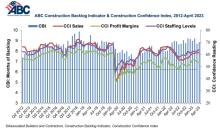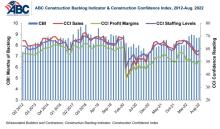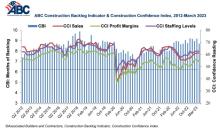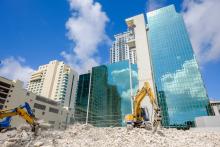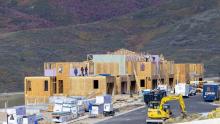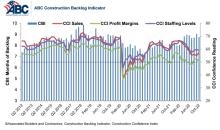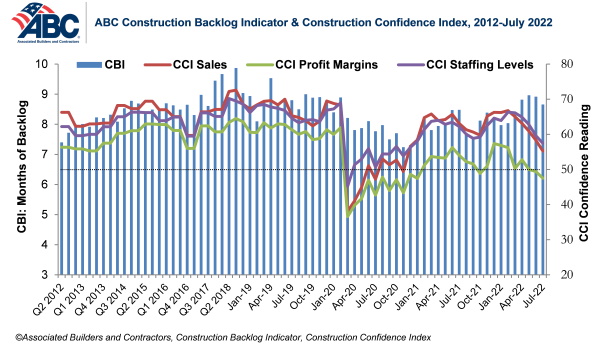
The indicator is an economic reflection of the amount of work that will be performed by commercial and industrial construction contractors in the months ahead.
The data comes from an ABC member survey conducted from July 20 to August 3. The 8.7 months backlog figure is up by 0.2 months year-on-year from July 2021.
ABC says that, while backlog is 0.3 months lower than the May 2022 peak, it remains higher than at any point between March 2020 and March 2022. Backlog rose sharply in the south of the country, which continues to be the highest of any region. Notably, backlog decreased by 1.2 months for contractors with less than US$30m in annual revenue.
ABC’s Construction Confidence Index readings for sales, profit margins and staffing levels declined in July. The indices for sales and staffing remain above the threshold of 50, indicating expectations of growth over the next six months, while the reading for profit margins remains below the threshold of 50 for the second consecutive month.
“The level of construction activity has begun to fade,” said ABC chief economist Anirban Basu. “While the average contractor still expects employment and sales to climb over the next six months, the current pace of expansion is poised to be slower than earlier stages of economic recovery. Higher borrowing costs, weak commercial real estate fundamentals and the reluctance of many project owners to bear the full brunt of higher construction materials prices and rising compensation costs are pushing profit margins lower and driving pessimism higher. The average contractor expects margins to shrink over the next six months."
Basu added that a growing number of contractors are preparing for tougher times ahead: “That is nothing new for an industry that has proven itself to be highly resilient and cyclical in recent decades. Nonetheless, for now, many contractors continue to operate at capacity and are actively looking to hire additional workers to expand capacity. It is simply too soon to conclude that the nonresidential construction industry has entered recession despite recent declines in backlog.”

